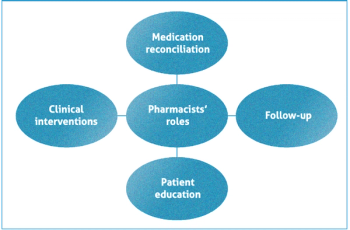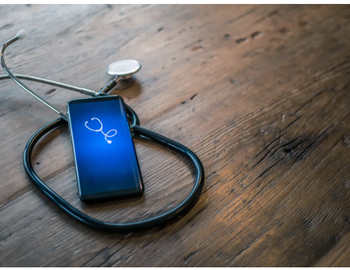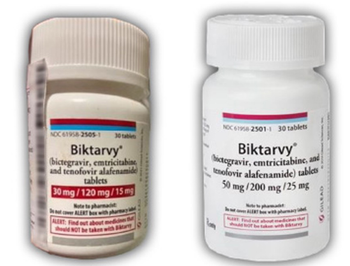
Getting Patients Started With DAYVIGO® (lemborexant) CIV
This is an advertisement paid for by Eisai Inc.
This brief tool provides information to help pharmacists prepare for counseling sessions with patients prescribed DAYVIGO®(lemborexant), a dual orexin receptor antagonist that is indicated for the treatment of adult patients with insomnia, characterized by difficulties with sleep onset and/or sleep maintenance.1 Pharmacists have an opportunity to counsel patients and help them get started with DAYVIGO at every prescription pickup.
GETTING STARTED
As a part of the counseling session, consider the following steps:
- Review key administration instructions.
- Set patient expectations of treatment.
- Emphasize the importance of sleep hygiene.
For patients seeking additional support or information, a savings program is available for eligible patients as well as patient education and support tools.
SELECTED SAFETY INFORMATION
CONTRAINDICATIONS
•DAYVIGO is contraindicated in patients with narcolepsy
Please see additional selected safety information below and full
DOSING AND ADMINISTRATION1
DAYVIGO is supplied as 5 mg and 10 mg tablets. The recommended starting dose of DAYVIGO is 5 mg.
- The dose may be increased to the maximum recommended dose of 10 mg based on clinical response and tolerability.
- There is no need for dose adjustment based on age, sex, BMI, and renal impairment.
- Patients aged 65 years or older should use caution when taking DAYVIGO 10 mg.
- Patients with severe renal impairment may experience an increased risk of somnolence.
For patients with moderate hepatic impairment, the maximum recommended dose is 5 mg once per night.
- DAYVIGO is not recommended for patients with severe hepatic impairment.
- Patients with mild hepatic impaiment may experience an increased risk of somnolence.
Advise patients to avoid concomitant use of DAYVIGO with strong or moderate CYP3A inhibitors and inducers.
- The maximum recommended dose of DAYVIGO is 5 mg no more than once per night when coadministered with weak CYP3A inhibitors.
Provide patients with these key administration instructions for DAYVIGO:
- Take DAYVIGO immediately before getting into bed and only if they can stay in bed for a full night (≥ 7 hours) before the planned time of awakening.
- The effect of DAYVIGO may be delayed if taken with or soon after a meal.
- DAYVIGO should not be taken more than once per night.
SAFETY1
Remind patients to read the FDA-approved patient labeling (Medication Guide) that comes with their DAYVIGO prescription.
Review the Patient Counseling Information in Section 17 of the DAYVIGO Prescribing Information to advise patients of potential side effects.
SETTING PATIENT EXPECTATIONS1
As it may take a few days to assess patient response, the prescribing physician may have recommended a trial period of 7 to 10 days of DAYVIGO (lemborexant) treatment.
- Remind patients that it is important to give DAYVIGO a trial of at least a week and see how it’s working.
- Inform your patients that they may feel differently when they fall asleep and stay asleep while taking DAYVIGO than their previous experience or expectations.
- Advise patients to follow up with their provider after 7 to 10 days—their doctor will determine if insomnia persists and will reassess for comorbid conditions.
SLEEP AND WAKING DISCUSSION POINTS2
In addition to treatment, patients may benefit from improving their sleep hygiene—habits that can help them optimize sleep. During counseling, ask your patients about their sleep patterns, such as:
- Do you take any medications before bedtime?
- Are you currently taking or have you tried taking any medications to help you sleep?
- How much time elapses between consuming your last meal and drink of the day and going to bed?
- Do you have trouble falling asleep, staying asleep, or both?
- How long have you been experiencing insomnia symptoms?
Counsel your patients on examples of good sleep hygiene.
Encourage your patients to:
- Ensure adequate exposure to natural light.
- Exercise daily.
- Limit daytime napping.
- Have a regular bedtime routine and stick to a sleep schedule with the same bedtime and wake-up time (even on weekends).
- Establish a pleasant sleep environment, create a relaxing ritual, and prepare their bedroom (eg, turn off lights, remove their phone or laptop, and keep their bedroom cool [between 60° and 70°F]).
- Avoid stimulants (eg, caffeine and nicotine) in the evening close to bedtime.
- Avoid alcohol use on days they plan on taking DAYVIGO.
- Avoid late evening meals, as DAYVIGO also may take longer to work if they take it with or soon after a meal.
DAYVIGO Patient Access and Education
Pharmacists may provide patients with information on the programs available to support access to DAYVIGO. Additionally, pharmacists can show patients these helpful tools and downloadable resources to learn more.
Patient Brochure: An educational resource available at
DAYVIGO Sleep Tracker: Patients can start tracking their sleep before bed and when they wake to understand how DAYVIGO may be working. This can be a useful tool to help optimize therapy.Patients can start tracking by:
- Visiting
DAYVIGO.com/tracker - Following the instructions provided
DAYVIGO Instant Savings Card: Eligible commercially insured patients may pay as little as $30 on out-of-pocket expenses on their prescriptions* for DAYVIGO with the DAYVIGO Instant Savings Card. Inform patients that they can download or activate a card at
For assistance activating or processing the Instant Savings Card, pharmacists and patients can call 1-866-4DAYVIGO or go to
*DAYVIGO Instant Savings Card Terms and Conditions: Good toward the purchase of DAYVIGO prescriptions. Most commercially insured patients will pay as little as $30 of out-of-pocket expenses. Instant Savings Card benefit is limited to twelve uses annually. Patients could have additional financial responsibility for any amounts over Eisai’s maximum liability. No substitutions permitted. Save the Instant Savings Card to reuse with each prescription. Not available to patients enrolled in federal or state healthcare programs, including Medicare, Medicaid, Medigap, VA, DoD, or TRICARE. Patients must have commercial insurance. Cash paying patients are excluded. Not valid for DAYVIGO prescription reimbursed in full by any third party payer. May not be combined with any other discount or offer. Federal law prohibits the selling, purchasing, trading, or counterfeiting of this card. Void outside the USA and where prohibited by law. Eisai Inc. reserves the right to rescind, revoke, or amend this offer without notice at any time. You must be 18 years or older to use the card. Patients and pharmacies are responsible for disclosing to insurance carriers the redemption and value of the Instant Savings Card and complying with any other conditions imposed by insurance carriers, third party payers, and applicable law on the redemption. The value of the Instant Savings Card is not contingent on any prior or uture purchases. This card may not be accepted at all pharmacies. This card is not an insurance program. No membership fees.This offer will expire 8/31/2023.
DAYVIGO Together: A support program for patients with insomnia, living with the challenges that accompany poor sleep. Patients can get access to tools and educational resources to help them navigate their personal insomnia challenges by visiting
DAYVIGO Patient Assistance Program: This program provides DAYVIGO at no cost to patients who meet program eligibility criteria. For more information, patients can call 1-866-349-3026 (hours of operation are Monday to Friday 8 am to 8 pm ET) or go to
Patient Trial Offer: Eligible patients with a valid prescription may obtain a free 10-day trial of DAYVIGO 5 mg when their Rx is accompanied by a voucher that the patient downloaded online or a physical voucher provided by the prescriber (one voucher redemption per patient).
ADDITIONAL INFORMATION FOR PHARMACISTS
Visit
Go to
For more information about DAYVIGO, see full
Price disclosure information for prescribers available here:
SELECTED SAFETY INFORMATION
WARNINGS AND PRECAUTIONS
•Central Nervous System (CNS) Depressant Effects and Daytime Impairment:
DAYVIGO can impair daytime wakefulness. CNS depressant effects may persist in some patients up to several days after discontinuing DAYVIGO. Prescribers should advise patients about the potential for next-day somnolence.
Driving ability was impaired in some subjects taking DAYVIGO 10 mg. Risk of daytime impairment is increased if DAYVIGO is taken with less than a full night of sleep remaining or at a higher than recommended dose. If taken in these circumstances, patients should not drive or engage in activities requiring mental alertness.
Use with other classes of CNS depressants (e.g., benzodiazepines, opioids, tricyclic antidepressants, alcohol) increases the risk of CNS depression, which can cause daytime impairment. Dosage adjustments of DAYVIGO and concomitant CNS depressants may be necessary when administered together. Use of DAYVIGO with other insomnia drugs is not recommended. Patients should be advised not to consume alcohol in combination with DAYVIGO.
Because DAYVIGO can cause drowsiness, patients, particularly the elderly, are at a higher risk of falls.
•Sleep Paralysis, Hypnagogic/Hypnopompic Hallucinations, and Cataplexy-Like Symptoms:
Sleep paralysis, an inability to move or speak for up to several minutes during sleep-wake transitions, hypnagogic/hypnopompic hallucinations, including vivid and disturbing perceptions can occur with DAYVIGO. Prescribers should explain these events to patients.
Symptoms similar to mild cataplexy can occur with DAYVIGO and can include periods of leg weakness lasting from seconds to a few minutes, can occur either at night or during the day, and may not be associated with identified triggering event (e.g., laughter or surprise).
•Complex Sleep Behaviors:
Complex sleep behaviors, including sleep-walking, sleep-driving, and engaging in other activities while not fully awake (e.g., preparing and eating food, making phone calls, having sex), have been reported to occur with the use of hypnotics such as DAYVIGO. Events can occur in hypnotic-naïve and hypnotic-experienced persons. Patients usually do not remember these events. Complex sleep behaviors may occur following the first or any subsequent use of DAYVIGO, with or without the concomitant use of alcohol and other CNS depressants. Discontinue DAYVIGO immediately if a patient experiences a complex sleep behavior.
•Patients with Compromised Respiratory Function:
The effect of DAYVIGO on respiratory function should be considered for patients with compromised respiratory function. DAYVIGO has not been studied in patients with moderate to severe obstructive sleep apnea (OSA) or chronic obstructive pulmonary disease (COPD).
•Worsening of Depression/Suicidal Ideation:
Incidence of suicidal ideation or suicidal behavior, as assessed by questionnaire, was higher in patients receiving DAYVIGO than placebo (0.3% for DAYVIGO 10 mg, 0.4% for DAYVIGO 5 mg, and 0.2% for placebo). In primarily depressed patients treated with hypnotics, worsening of depression and suicidal thoughts and actions (including completed suicides) have been reported. Suicidal tendencies may be present in such patients and protective measures may be required. Intentional overdose is more common in this group of patients; therefore, the lowest number of tablets that is feasible should be prescribed at any one time. The emergence of any new behavioral sign or symptom of concern requires careful and immediate evaluation.
•Need to Evaluate for Comorbid Diagnoses:
Treatment of insomnia should be initiated only after careful evaluation of the patient. Re-evaluate for comorbid conditions if insomnia persists or worsens after 7 to 10 days of treatment. Worsening of insomnia or the emergence of new cognitive or behavioral abnormalities may be the result of an unrecognized underlying psychiatric or medical disorder and can emerge during the course of treatment with sleep-promoting drugs such as DAYVIGO.
ADVERSE REACTIONS
•The most common adverse reaction (reported in 5% of patients treated with DAYVIGO and at least twice the rate of placebo) with DAYVIGO was somnolence (10% for DAYVIGO 10 mg, 7% for DAYVIGO 5 mg, 1% for placebo).
DRUG INTERACTIONS
•CYP3A Inhibitors: The maximum recommended dose of DAYVIGO is 5 mg no more than once per night when co-administered with weak CYP3A inhibitors. Avoid concomitant use of DAYVIGO with strong or moderate CYP3A inhibitors.
•CYP3A Inducers: Avoid concomitant use of DAYVIGO with moderate or strong CYP3A inducers.
USE IN SPECIFIC POPULATIONS
•Pregnancy and Lactation: There is a pregnancy exposure registry that monitors pregnancy outcomes in women who are exposed to DAYVIGO during pregnancy. Healthcare providers are encouraged to register patients in the DAYVIGO pregnancy registry by calling 1-888-274-2378. There are no available data on DAYVIGO use in pregnant women to evaluate for a drug-associated risk of major birth defects, miscarriage, or adverse maternal or fetal outcomes.
There are no data on the presence of lemborexant in human milk, the effects on the breastfed infant, or the effects on milk production. Infants exposed to DAYVIGO through breastmilk should be monitored for excess sedation.
•Geriatric Use: Exercise caution when using doses higher than 5 mg in patients ≥65 years old.
•Renal Impairment: Patients with severe renal impairment may experience an increased risk of somnolence.
•Hepatic Impairment: The maximum recommended dose of DAYVIGO is 5 mg in patients with moderate hepatic impairment. DAYVIGO is not recommended in patients with severe hepatic impairment. Patients with mild hepatic impairment may experience an increased risk of somnolence.
DRUG ABUSE AND DEPENDENCE
•DAYVIGO is a Schedule IV-controlled substance.
•Because individuals with a history of abuse or addiction to alcohol or other drugs may be at increased risk for abuse and addiction to DAYVIGO, follow such patients carefully.
For more information about DAYVIGO, see full
REFERENCES
- Dayvigo. Prescribing Information. Esai; 2021. Accessed July 20, 2021. https://www.dayvigohcp.com/-/media/Files/DAYVIGOHCP/PDF/prescribing-information.pdf
- Sleep hygiene. National Sleep Foundation website. Accessed July 20, 2021.
www.sleepfoundation.org/articles/sleep-hygiene
DAYVIGO® is a registered trademark used by Eisai Inc. under license from Eisai R&D Management Co., Ltd.
Newsletter
Stay informed on drug updates, treatment guidelines, and pharmacy practice trends—subscribe to Pharmacy Times for weekly clinical insights.



























